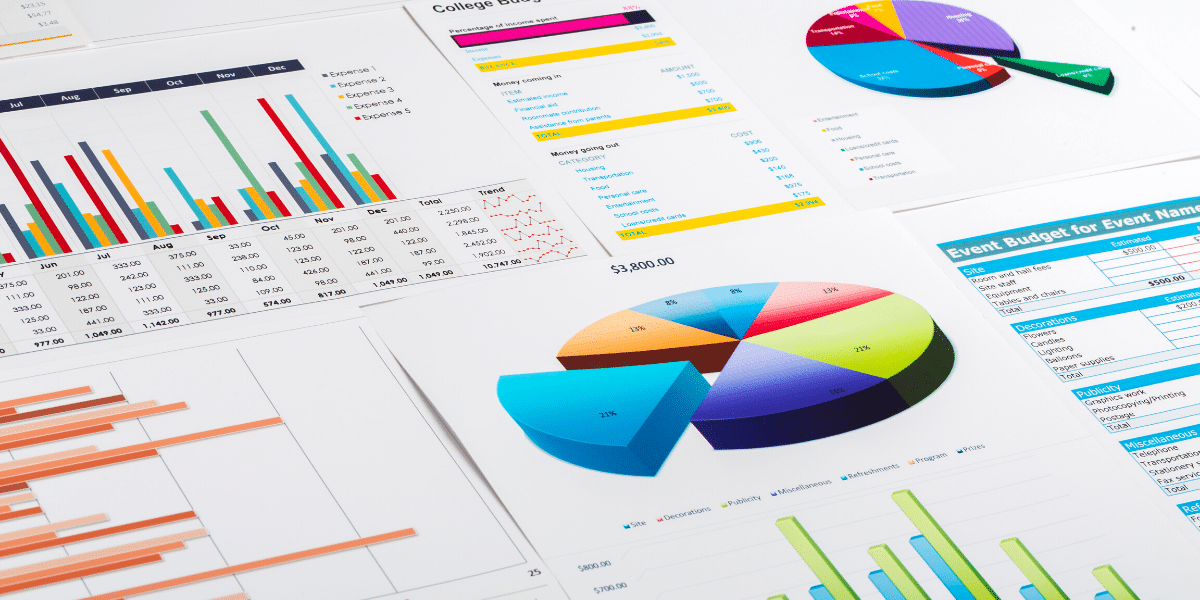Data plays a key role in any successful sales team’s day-to-day work. The importance of data is clear from the vast number of businesses that now offer software solutions that help sales teams collect, analyze, and communicate key data.
Yet many businesses still face the challenge of communicating the benefit of collecting and leveraging sales data. This means poor buy-in from their sales team, and ultimately lead to the consistency and quality of data is lacking.
Collecting sales data is important and using it effectively could be the key to unlocking sales success.
Collecting Data
Most businesses collect sales data in some shape or form. This may be as simple as collecting the total sum of sales made by your sales professionals in a given time. It can also be more complicated and span anything from collecting minute data from the wider market to tracking internal interactions.

Successful sales teams will usually use a CRM platform such as Salesforce as a central location for the collection, analysis, and communication of key sales data. They also create established processes for how data should be handled within these CRMs, ensuring that all requirements are met and data quality remains high.
What data is collected can vary from business to business and will depend on many factors such as the market and the business’s individual goals and targets. However, most businesses collect data such as historical sales, customer information, market information, and data on the physical product or service which is being offered.
Leveraging Data
Collecting sales data will help you unlock more sales for your organization if you understand how to use it to your benefit.
Informing Decisions
Quality sales data should be your first port of call when faced with critical decisions in moving your business forward. For example, you may look at data collected on market trends, customer feedback, and product margins when assessing how to create a more desirable and profitable product offering.
Supports Problem Solving
In many ways, sales professionals are expert problem solvers. If businesses made consistent sales month to month without any challenges, there would be little need for a team of dedicated sales professionals to ensure success.
Collecting data provides sales teams with two key pieces of information when problem-solving. First, your data highlights which options are currently open to you, narrowing down potential wasted resources in pursuing pointless solutions. Second, it can provide you with historical data from when similar problems have been tackled before, and show how effective the solution was.
Identify Areas for Improvement
Spending the time to clearly define each stage of your sales process and collecting key data from each stage will help you easily identify areas for improvement.
For example, you may know that your sales funnel starts with cold calling and that for every 500 calls made you close 5 sales. However, by collecting data from each stage you could identify a drop off of prospects.
For example:
- Stage 1 (cold calling): 500
- Stage 2 (face-to-face meeting): 450
- Stage 3 (offer): 390
- Stage 4 (negotiation): 10
- Stage 5 (close): 5
Previously, you may have assumed that you needed to improve your cold calling technique to increase the number of closed deals. But by collecting more data at each stage of the process, you can see that making improvements to the offer stage will create the biggest benefit.
Create Customer Insight & Relationships
Knowing your customer better helps you build better relationships. Better relationships, in turn, make it easier to make more sales.
Successful sales professionals are great listeners and spend a lot of time and effort in getting to know their customers. However, this is often achieved via one-to-one conversations where a customer may explain what their challenges are and what they need.
Although this is certainly good practice, collecting customer data can help you understand what your customer needs, even before they share that information. This is crucial for getting a clearer picture of how you should be dealing with customers as they may be telling you one thing, but mean something completely different.
For example, your customer contact may tell you ‘widget number one’ is the perfect solution to their problem. But the data shows that they are consistently ordering ‘widget number two’. This could be for any number of reasons such as cost or an internal difference of opinion. Without having this data, you would assume that ‘widget number one’ is exactly what your customer is looking for, and keep pushing it without question.
Collecting customer data also allows you to increase sales by including detailed personalization. This may include tailoring products, services, or packages to your customer’s exact needs, or by simply creating better relationships through personalizing automated communication.
Measure Success
Finally, collecting quality sales data facilitates the measurement of success and the resulting motivation. Knowing your historical averages supports the development of realistic Key Performance Indicators, which can be used to measure current data against.
Data Quality
How well your data allows you to execute on the above points depends widely on its quality. By introducing established processes and defining responsibilities in data collection and analysis, you stand the best chance of achieving success.

Poor quality data is often found where its collection is an afterthought or the true benefit is not correctly communicated and therefore buy-in into its consistent collection is not achieved.
Sales Data = Sales Success
Collecting sales data can seem like a lot of effort until you understand the various benefits of doing so. Spending the time to work out exactly what data you need to collect and how you can ensure its quality will inevitably result in greater sales.

What data do you already collect in your business which could be leveraged to help you make more sales?

